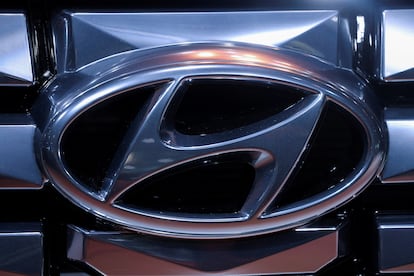Higher investment means Hyundai could get $2.1 billion in aid to make electric cars in Georgia
The deal calls for Hyundai and battery maker LG Energy Solution to invest $7.6 billion in the Georgia plant and hire 8,500 workers by the end of 2031

The state of Georgia and local governments are on track to give $2.1 billion in tax breaks and other incentives to Hyundai Motor Group after the South Korean automaker and a partner announced last month that it will invest an additional $2 billion at an electric vehicle complex it’s building in Georgia.
Associated Press calculations show projected incentives will rise by more than $290 million from the $1.8 billion deal originally announced last year. Only $2.75 million of that represents additional cash from the state. The rest will come from increases in tax breaks.
The deal calls for Hyundai and battery maker LG Energy Solution to invest $7.6 billion in the Georgia plant and hire 8,500 workers by the end of 2031. That’s up from the original job projection of 8,100 at the sprawling electric vehicle and battery complex being built in Ellabell, west of Savannah.
It’s the largest economic development deal in Georgia history, and comes with the largest incentive package.
State leaders say benefits to Georgia outweigh the incentives. Economic Development Commissioner Pat Wilson said Hyundai is projected to have a direct payroll of $4.7 billion over the next 10 years. The company has promised to pay workers a yearly average of $58,105, plus benefits.
“As we work together to deliver a state-of-the-art facility in Bryan County that will provide well-paying jobs to Georgians, we know Hyundai Motor Group will give back to the region, investing in our schools, families, and communities, and we are grateful for those planned investments,” Wilson said in a statement Friday, when the state released an amended incentive agreement.
Local officials released property tax projections to the AP on Tuesday.
The Hyundai package has already been described as the largest subsidy package a U.S. state has ever promised a single automotive plant. That’s according to Good Jobs First, a group skeptical of subsidies to private companies.
Local governments have agreed to abate property taxes on the assembly plant through 2048, and to abate property taxes on the battery plant through 2049. During that time, Hyundai is projected to pay $523 million in taxes, while saving $669 million.
The state projects it will waive an additional $81.8 million in sales taxes on construction materials and machinery, bringing Hyundai’s savings from those exemptions to more than $478 million.
The company is also projected to receive an additional $10.5 million in state income tax credits, at $5,250 per job over five years, because of the increase in jobs. That would bring Hyundai’s state income tax savings to $223 million. If Hyundai didn’t owe that much state corporate income tax, Georgia would instead give the company personal income taxes collected from Hyundai workers.
The state will spend an additional $2.75 million to help fund construction, machinery and equipment, boosting that total to nearly $53 million.
Parts of the deal that didn’t change including state and local governments spending of more than $112 million to buy and prepare 2,913 acres (1,179 hectares) for the plant and spending $175 million on water and sewer facilities. The state will spend $210 million on road construction and improvements, and more than $153 million to recruit and train workers.
The deal requires Hyundai to pay back a portion of the incentives if the company falls below 80% of promised investment or employment.
Hyundai plans to start EV production in 2025, initially making 300,000 vehicles per year, and possibly expanding to 500,000 a year. Since the company announced its first U.S. plant solely dedicated to electric vehicles, suppliers have pledged to invest $2.2 billion and to hire 5,300 people.
The announcements are part of an electric vehicle and battery land rush across the United States. Under the U.S. Inflation Reduction Act, EVs must be assembled in North America, and a certain percentage of their battery parts and minerals must come from North America or a U.S. free trade partner to qualify for a full $7,500 EV tax credit.
Sign up for our weekly newsletter to get more English-language news coverage from EL PAÍS USA Edition
Tu suscripción se está usando en otro dispositivo
¿Quieres añadir otro usuario a tu suscripción?
Si continúas leyendo en este dispositivo, no se podrá leer en el otro.
FlechaTu suscripción se está usando en otro dispositivo y solo puedes acceder a EL PAÍS desde un dispositivo a la vez.
Si quieres compartir tu cuenta, cambia tu suscripción a la modalidad Premium, así podrás añadir otro usuario. Cada uno accederá con su propia cuenta de email, lo que os permitirá personalizar vuestra experiencia en EL PAÍS.
¿Tienes una suscripción de empresa? Accede aquí para contratar más cuentas.
En el caso de no saber quién está usando tu cuenta, te recomendamos cambiar tu contraseña aquí.
Si decides continuar compartiendo tu cuenta, este mensaje se mostrará en tu dispositivo y en el de la otra persona que está usando tu cuenta de forma indefinida, afectando a tu experiencia de lectura. Puedes consultar aquí los términos y condiciones de la suscripción digital.








































